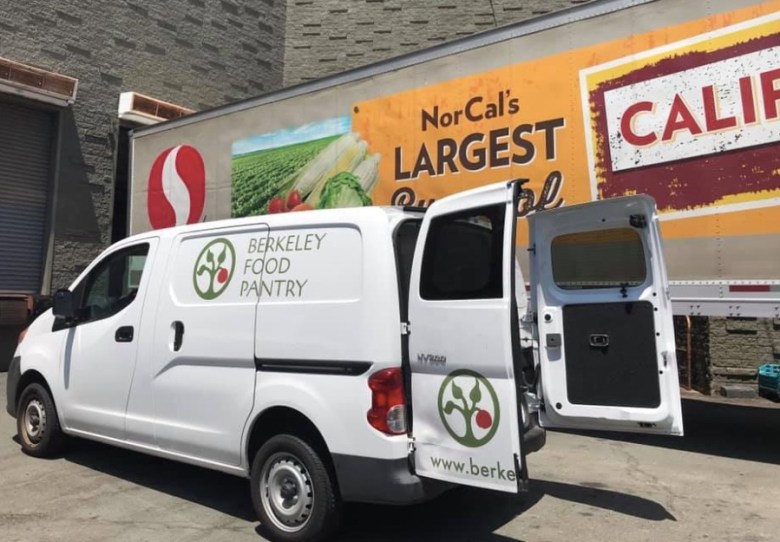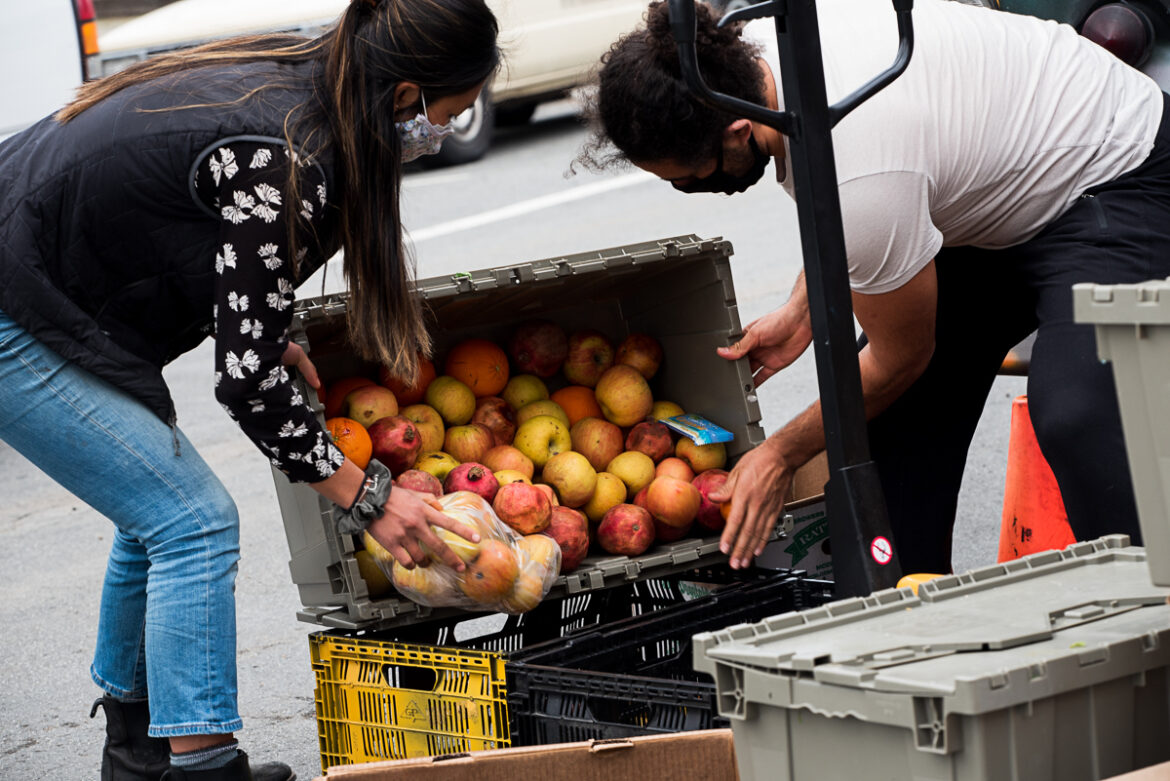Berkeley Food Network (BFN) is taking over management of the Berkeley Food Pantry, in what both organizations have characterized as a merger that will have minimal impact on operations for the foreseeable future.
According to Andrew Crispin, executive director of the network, contract details are still being finalized. However, talks have concluded and the pantry will now enter a six-month transition period, where BFN will conduct research to evaluate how the pantry currently operates. BFN also plans to host listening sessions with current staff and volunteers to get their feedback and address any of their concerns. The first session is being held next Wednesday, July 30, at the Berkeley Friends Church.
The Berkeley Food Pantry, located at 1600 Sacramento St, was established in 1969 at the Berkeley Friends Church where it still operates. For 56 years, the pantry has provided fresh produce to approximately 4,000 Berkeley and Albany residents each month facing food insecurity. It also partners with a number of local grocers and donors, including Berkeley Natural Grocery, Thistle and Alameda Community Food Bank.
Last year, the network distributed over 2 million pounds of food to their 74 distribution partners and residents across the East Bay.
For now, the Berkeley Food Pantry will remain open and operate as normal.
Genie Stowers, head of the Berkeley Food Pantry Oversight Committee, said there are no plans to pause distribution or close the pantry in the future and the two organizations hope the merger will feel seamless to the public.
 The Berkeley Food Pantry has been in operation for 56 years. Credit: Berkeley Food Pantry
The Berkeley Food Pantry has been in operation for 56 years. Credit: Berkeley Food Pantry
“It’s like you really won’t notice a difference. Food is still going to be available, and for us, that’s the important thing,” Stowers said.
According to Crispin, talks began in July 2024 when representatives from the Berkeley Friends Church and Berkeley Food Pantry Oversight Committee approached Crispin, asking him to explore the idea of a merger. Crispin, who came into his position as executive director over a year ago, agreed, feeling open and optimistic about the idea.
BFN was founded in 2016 by a Sara Webber, a former director of Berkeley Food Pantry. BFN operates its primary food pantry out of its 9th Street facility, but it also runs a mobile pantry and several seasonal ones.
“Berkeley Friends Church and Berkeley Food Pantry have been sourcing food from Berkeley Food Network’s warehouse to run their pantry for several years,” Crispin said. “What has come up is that the church ultimately wants to get back to church business, and, through this partnership with Berkeley Food Network, leave pantry administration to us.”
Stowers, who echoed Crispin’s account, has been a member of the oversight committee for eight years, and served as its leader for the three. Stowers stresses that the merger is not due to a lack of funding, but more so a lack of bandwidth.
“We just felt like they were equipped to handle this. They have more staff than we do, and they would be equipped to handle the number of people we have coming,” she said.
Since the pandemic, the pantry has seen a large uptick in residents requiring food assistance. In January 2022, the pantry was providing aid to 1,028 households, but by December 2024, they were providing for 1815 households, a sizable 77% increase. This unprecedented growth drove Stowers and other committee members to approach BFN, which Stowers believes is better equipped to handle the heightened demand.
According to Crispin, BFN and its partner organizations have also witnessed this growing need for food assistance. The network expects that the need for support will continue to grow in the area, and it is working to ensure that it can maintain its commitment to the Berkeley public. There are also concerns that cuts to the Supplemental Nutrition Assistance Program (SNAP) in the recently passed federal spending bill will further exacerbate the situation.
“Being in a nonprofit is not easy right now, and I think it’s [become] very clear that the future [holds] more challenges, and higher levels of competition for the same or fewer dollars all around,” Crispin said. “From our perspective, it makes sense to partner with organizations in our shared community who have the same volunteers, the same donors, some of the same community members, and support it, and make our impact stronger so that the dollars that we’re fundraising for are going more towards addressing hunger and food insecurity and less towards administrative costs and burdens.”
“*” indicates required fields

